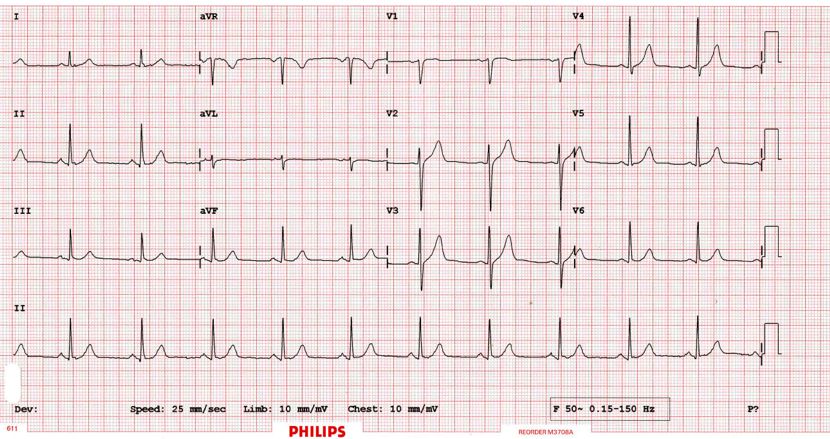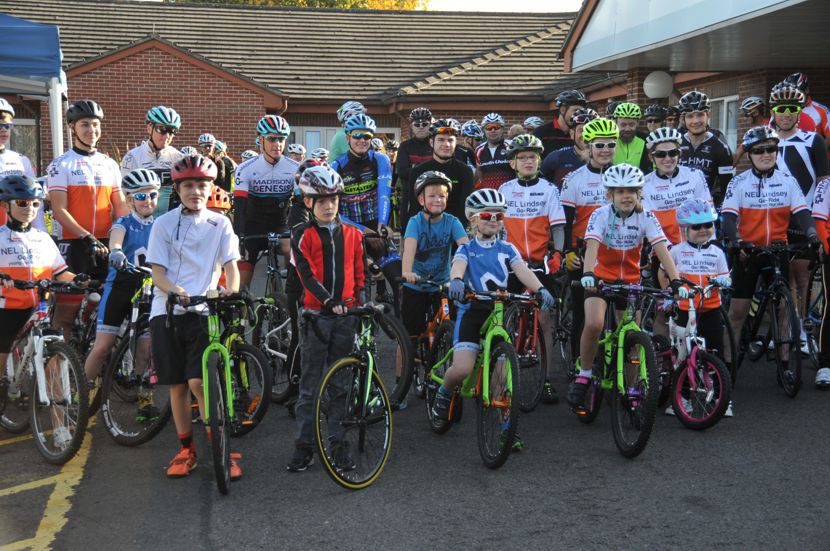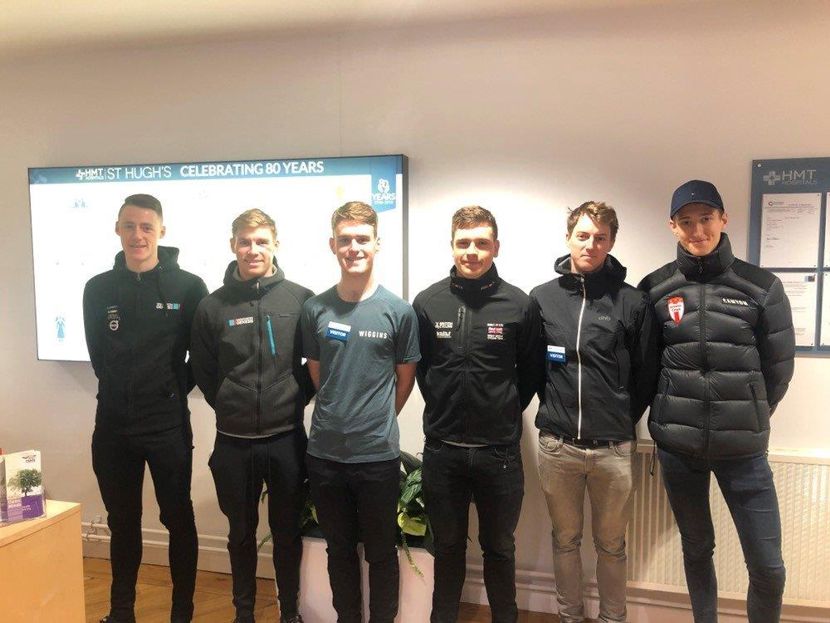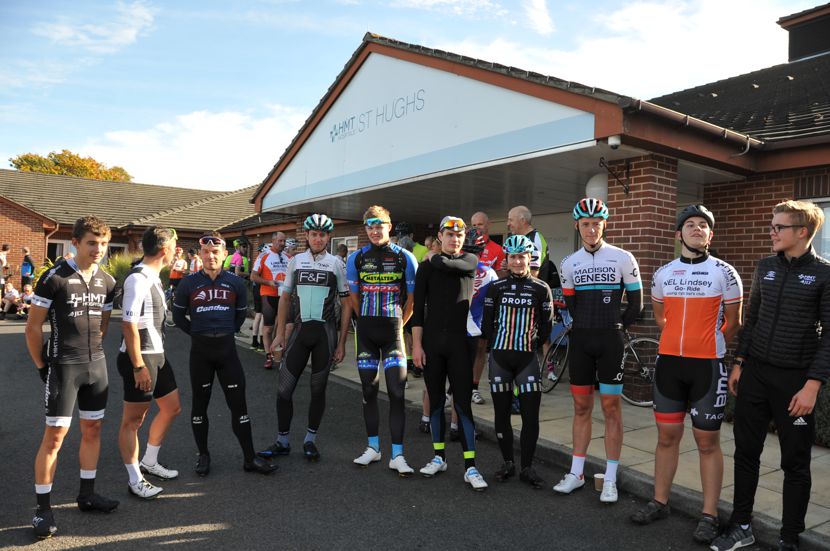Preventing the Preventable
It is a sad reoccurring headline, an otherwise fit and healthy young cyclist dies from a heart attack, but most of these attacks can be prevented by cardiac screening.
Competitive cycling puts a huge strain on the human heart, but for most of the population, so long as training is built up slowly and progressively, this strain is good for the heart. Proper training stimulates the heart so it becomes stronger and more efficient. However, a small percentage of people have defects in their heart, and they are at risk if their problem is undetected and they exercise intensely. That’s why British Cycling recently brought in mandatory cardiac screening for every rider in its performance system, from academy to elite level.

Michael Goolaerts suffered a heart attack and died while competing in the 2018 Paris-Roubaix classic, he was 23.
Heart related sudden death in older people is usually due to coronary heart disease (blocked arteries in the heart), but sudden death in people who are less than 35 years old is usually due to hereditary conditions. The first line in screening for congenital heart defects is the use of an electrocardiogram (ECG)
Electrocardiogram equipment allows trained medical practitioners to take a resting, non-invasive look at the electrical activity of a subject’s heart. The readings obtained are compared with normal heart readings. By comparing measurements of the trace the heart produces, looking at things like the QT interval, against a normal trace you can detect any abnormalities in the structure of the heart, such as hypertophic cardiomyopathy, also known as HCM.

An ECG trace
HCM is sometimes called chunky heart disorder. It is relatively uncommon, although it is estimated that as many as 10,000 people might have it the UK. Heart muscle in a normal heart is arranged in an ordered way and although it may become thickened as a result of athletic training, it keeps its ordered shape and doesn’t interfere with blood flow. It may also become thickened due to high blood pressure, which has health consequences of its own. But in hypertrophic cardiomyopathy cases the heart muscle fibres are arranged haphazardly and become thickened for no apparent reason, making the heart vulnerable to potentially fatal heart rhythms.
HCM is caused by abnormalities in the genes that make proteins responsible for heart contraction. The condition affects both sexes and all ethnic groups, and abnormal growth can even begin in the foetal heart.
Symptoms and the severity of HCM vary, many sufferers do not even show any symptoms at all and their first suspicion is when another family member is screened or diagnosed. It is also quite regular for nothing to be known until unexplained sudden death occurs. However, any shortness of breath, chest pains, palpitations or light headedness and blackouts should checked out by a GP as soon as possible.
Cardiac screening in action
British Cycling’s newly instituted cardiac screening initiative for members of its performance squads has received widespread support, but the director of St Hugh’s Hospital in Grimsby, Ashley Brown, an experienced cyclist and very able competitor himself, went one step further and wanted to help practically.
St Hugh’s has been involved with cycling for some time, Gary Allington who delivers the hospital’s community health programme says; “I’m involved in the hospital sponsoring various cycling activities. We’re not like a local authority, so we can’t have an all-encompassing effect, but through our charitable status we try and put back as much as we can into the community. We put on regular ‘Ride with the pros’ days to celebrate HMT’s input into cycling in general. We’ve helped several young riders from the wider Grimsby area develop their professional cycling careers, and we invite them to lead regular rides with local cyclists. They’ve proved very popular with all ages."

Riders ready for one of St Hugh's 'Ride with the Pros' events
Some of the young riders St Hugh's has helped are now part of British Cycling’s performance programme, so shortly after its cardiac screening initiative was announced Ashley Brown invited them to be screened at St Hugh’s, saying; “I’m pleased to see British Cycling has taken such a positive step in helping protect the health of our athletes. Cycling, like many sports, puts the body under extreme physical pressure and these tests will highlight potential problems before they result in life-altering incidents.
“We’ve supported a number of cyclists as they’ve progressed through the amateur ranks and taken to the national and international stage for a range of teams. Finding, investigating and treating heart conditions is of the upmost importance, especially in athletes, because of the long-term implications of leaving them unidentified, so we're happy to invite them to be tested by our cardiologist at St Hugh’s”
On Tuesday January 3rd this year, five young professional riders attended St Hugh’s in Grimsby to be tested. They were Madison Genesis rider Connor Swift who is the British men’s elite national road race champion, and Joey Walker; the Team Wiggins-Le Col riders Rob Scottt and Gabz Cullaigh; Canyon-Eisberg’s Tom Stewart, and Ben Turner of the Belgian Beobank-Corendon team.

The riders who were screened at St Hugh's
All the riders were screened by a St Hugh’s cardiac specialist, and specialists are required to undertake this work when screening high performance athletes because intense physical activity can lead to changes in the human heart that can mimic characteristics found in genetic heart disease. Cardiologists are best place to recognize very important differences between the two.
All the riders examined were given the all-clear with nothing found that warranted any further examination. Acting as spokesman Connor Swift offered; “A huge thanks to the whole team for making the procedure stress free. It’s good to know we are in safe hands, and to have the confidence that everything is working as it should be. That’s very useful when you are racing hard.”
People of all ages should seek their doctor’s advice before taking up a fitness routine, but those under 35 should consider cardiac screening even if they have been exercising hard without any adverse symptoms. Cardiac screening is crucial for the health and safety of young sportspeople, but knowing that your heart is working perfectly is a good confidence builder for exercisers of any age.
Cycling Legends fitness stories are sponsored by





